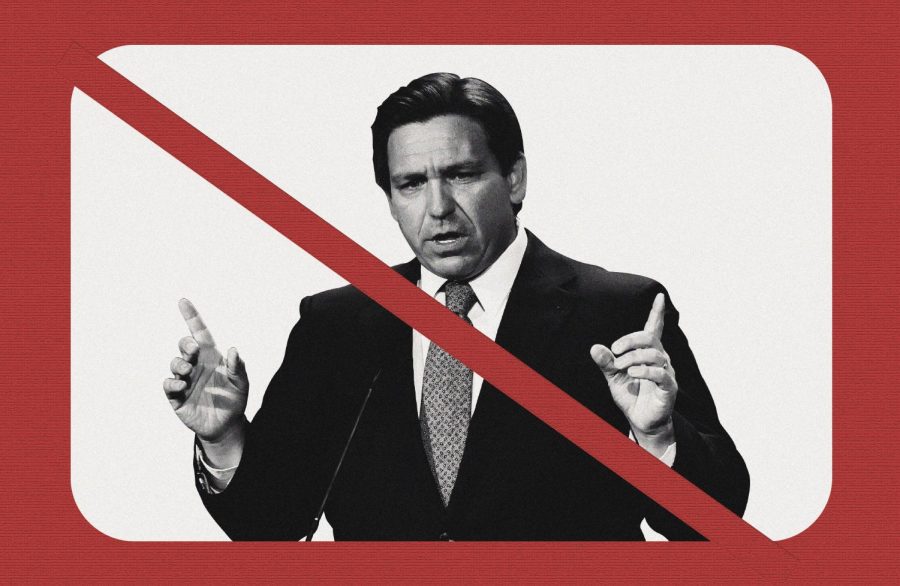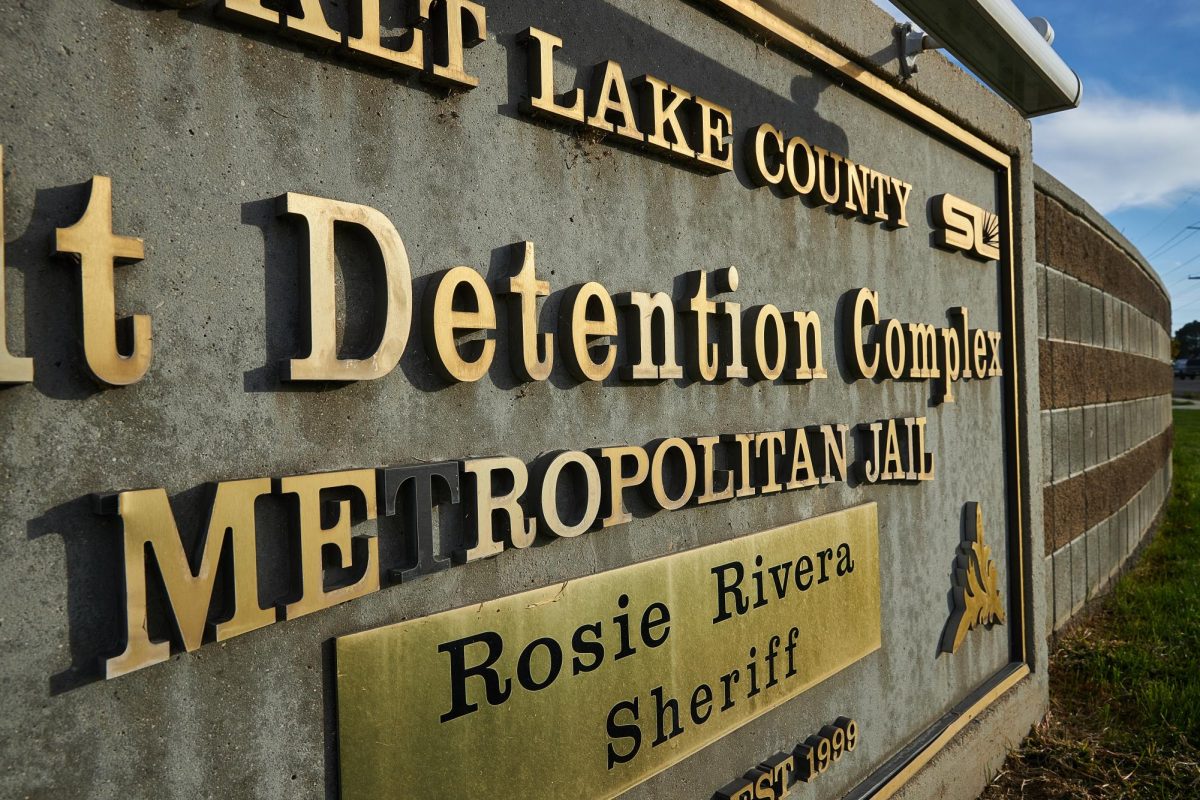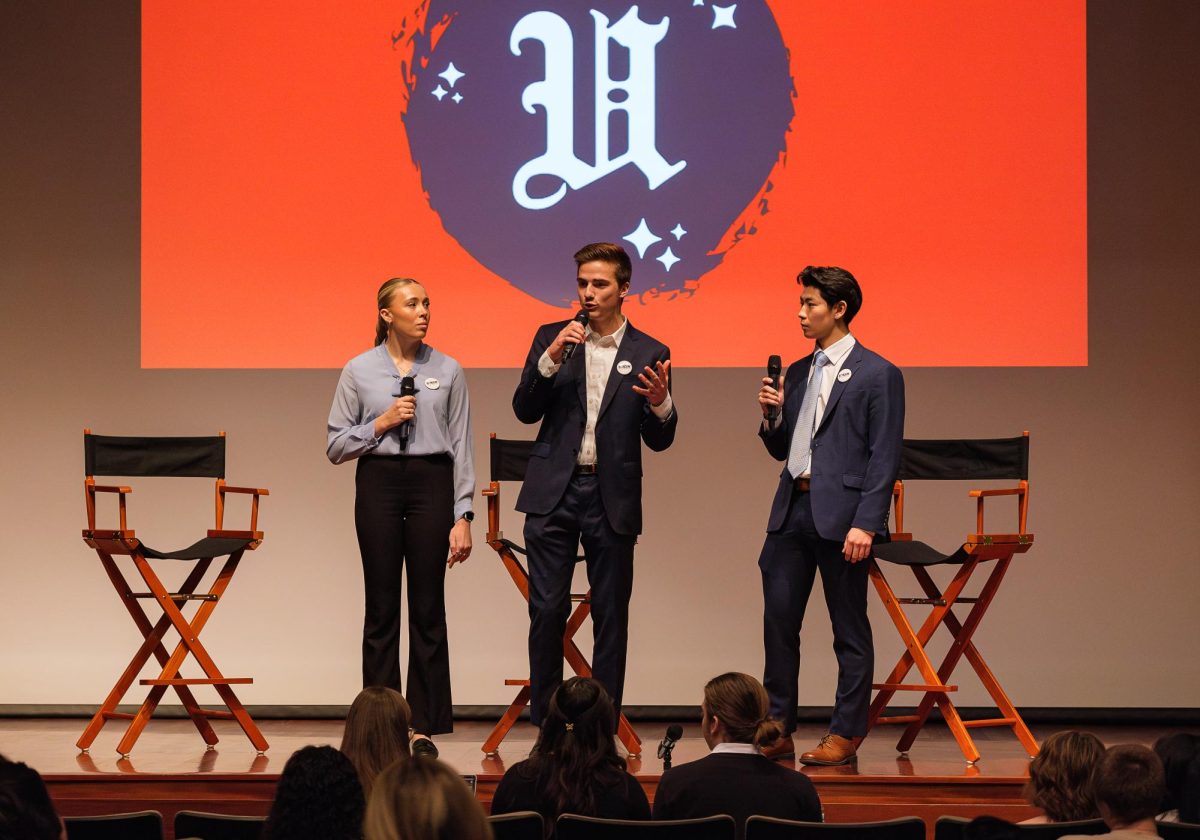Alexander: Say Goodbye to DEI
(Design by Mary Allen | The Daily Utah Chronicle)
June 12, 2023
On May 15, Florida Gov. Ron DeSantis signed a bill banning diversity, equity and inclusion initiatives in the state’s public colleges and universities. Then on May 30, the Texas State Legislature passed its own ban to eliminate DEI programs in higher education.
These red states are the latest to attack DEI efforts, pushing back against policies they believe to be “too woke.” I’m afraid Utah will be next to eliminate DEI efforts — and not just in universities.
Utah’s antagonism toward DEI started back in 2021. Following conservative vilification of critical race theory nationwide, Utah lawmakers issued a resolution urging against teaching the framework. Utah’s Board of Education subsequently outlined rules for educators in teaching about race.
Since then, Florida has rejected an AP African American studies class, while Virginia ordered a review of the same course. The College Board then revised the class to appease criticism, and Texas attempted to ban CRT in state universities. Although CRT isn’t necessarily DEI, there’s a common theme here: conservatives’ discomfort with addressing or learning about our nation’s history with racism.
We’ve seen these attitudes manifest on our own campus in the group, Young Americans for Freedom. The student group is quite explicit in opposing DEI and CRT. They’ve gone so far as to invite Natalie Cline, Utah Board of Education member and adamant opponent of CRT and DEI, to speak at one of their events.
Despite protests against the YAF event, we cannot ignore the growing sentiment that is conservative opposition to DEI and CRT. It’s on our campus, and it’s in our state legislature.
Because it’s likely Utah will be next to ban DEI in higher education, I reached out to the University of Utah’s Office of Equity, Diversity and Inclusion.
Vice President Mary Ann Villarreal said, “I really feel like the opposition is not necessarily at us. The opposition is out of concern and fear about who we leave behind.”
When asked what their office was doing to protect and further DEI on campus, Villarreal said, “I don’t know that I’d use the word ‘protect,’” explaining that the office’s work is thoughtful and strategic to build themselves and serve the campus community. “My job is not to fight against, my job is to lead us out.”
I asked repeatedly what the office would do if a ban against DEI was passed. Villarreal and the EDI Office would not commit to continuing their DEI initiatives, saying, “I can’t answer that.”
Rebecca Walsh, Director of University Marketing & Communications, interjected. “There’s hypotheticals to address,” she said. “We don’t know what kind of legislation will be coming in next year.” Funny, because we do.
To restrict liberal education and so-called “indoctrination,” Utah legislators have their own plans. In 2022’s General Session, Sen. John Johnson pushed S.B. 157, which gave parents the right to withdraw their children from lessons and opt out of materials they found objectionable. This year, Rep. Tim Jimenez tried to limit how teachers discuss race, gender, sexuality and history of marginalized groups in classrooms. We also saw multiple book-banning bills. And last, but not least, Rep. Katy Hall attempted to prohibit DEI in higher education — exactly like Texas and Florida’s latest bills.
While a few of these bills were passed, Hall’s wasn’t. But that doesn’t mean Utah legislators won’t try again. If our legislature has any defining quality, it’s their persistence to pass hateful and exclusionary legislation.
Although this year’s general session is over, this fight is anywhere but close to finished. Legislative negotiations are year-round, and Walsh acknowledged this. “We do know that there’s a communication process going on during this interim session, during the summer and into the early fall, where lots of Utah institutions are working with legislators and getting together and talking with [university communications] leaders to discuss that legislation and work together to try to find a Utah solution.”
Despite the discouraging answer and lack of commitment to ensuring marginalized U students, staff and faculty will be defended, Villarreal did close our interview with some consolation.
“This is not a moment in which we want [students] to lose hope. … Our doors are open. All the doors are open at the University of Utah for them, and we will continue to be a part of their academic journeys.”
But it’s hard to not lose hope. Seeing conservative opposition to CRT and DEI grow and make its way through the Utah education system is disheartening. And watching the U not stand up against it is worse.
CRT teachings and DEI programs help make Utah a safer place for marginalized communities, opening doors that were once closed for these groups. But the institutions and leaders who are supposed to foster these values are failing us. If threats of legislative action alone have us scared to talk about equity, does the legislature even need to pass a bill to kill it? And if the U’s DEI team can’t fight against attacks on their own work, are we really that different from a campus without one in the first place?
We’re approaching times in which the need for CRT and DEI are higher than ever. I certainly don’t want to live in a world without them. But there’s only so much I can do. I’ve been covering this moral panic at the Chronicle for months now, and this is the loneliest I’ve felt in this fight since I started.
As I try to wrap up this column, all I can think about are Rep. Sandra Hollins’ remarks: “I don’t know what to tell my community anymore. I don’t know how to make them feel safe anymore.”










William Beard • Jun 17, 2023 at 8:33 pm
Good job CJ in uncovering the hidden agenda at the U and in our state legislature. Keep up the good work, and prayerfully the public will wake up, speak up and vote for a change in their status quo.
patrick a shea research professor of biology, (ret.) • Jun 12, 2023 at 10:30 am
PE I and CRT are excellent examples of weapon icing for political gain purposes. The aspiration of DE I is certainly commendable and much needed in this country, and certainly in this state. Unfortunately the radical right has taken it on as a simplistic moniker that can attract people who are not critical thinkers, and don’t want their children to be critical thinkers.
Fortunately, we are guaranteed First Amendment Rights and Article 1 Section 18 of the Utah Constitution the broad rights of free speech and critical thinking.
Political proponents like to make things bipolar – thesis and antithesis. It makes their job, and moneymaking, much easier. Why doesn’t the Chronicle host a series of civil debates where strong proponents and opponents of DE I and CRT in a civil manner debate the various components of this very threatening polarization
John Bob Doe • Jun 12, 2023 at 10:22 am
Considering how this is the state that literally passed a ban law that would affect only a single person I have no faith in this legislature. The responses from the University Staff is predictable yet depressing nonetheless. Especially as a research institution you’d think they would care a lot more about knowledge and learning being selectively removed but I guess not. But hey! At least student’s tuition is still getting more expensive ever year right?!